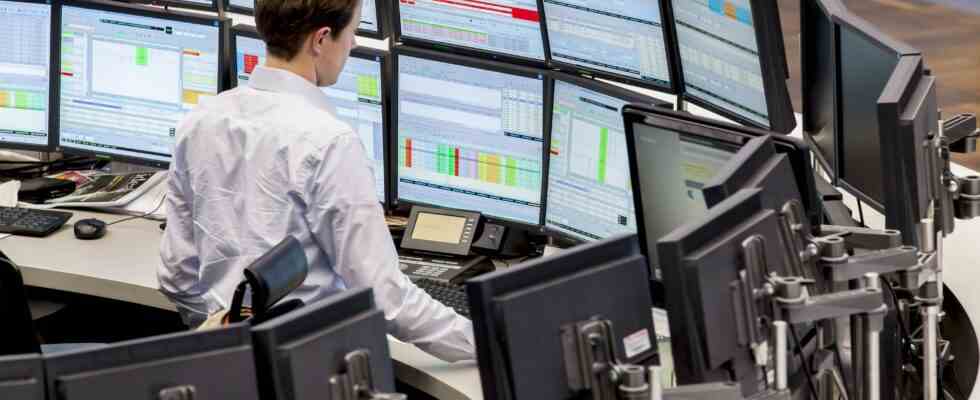Status: 11/28/2022 3:39 p.m
It was the beginning of the end of stock trading on demand: 25 years ago, Deutsche Börse introduced the Xetra computer trading system. However, people have not completely disappeared from the trading floor.
It’s the 1990s. Synth beats go up and down on the radio. And the beat of the traders pulsates on the stock exchanges. Loud shouts, hustle and bustle, wild gestures: That’s exactly how it was stock exchange at that time.
But on November 28, 1997, that all came to an end: the digital computer system Xetra took over the work of the so-called price brokers, who had previously set the prices for shares. But the skepticism is great at first. Critics complain that computer trading is turning the stock exchange into a “pure casino”. There are also fears that private investors could have less access to information.
“Social contacts can also be cultivated differently”
25 years later, the criticism has died down. Hardly any stockbroker wants to do without Xetra today. 80 percent of stock transactions in Germany are processed through it: around one million orders per day on average.
“It’s always the case when something is given up. Then you first mourn the good old days,” says stock trader Robert Halver from Baader Bank. The advantages are obvious. “If you look at it soberly today: you can still maintain social contacts in other ways. The decisive factor is that a platform was found that – in my opinion – works, that is fair, and you can do a lot more business.”
Business in milliseconds
And Xetra has another big advantage: It is cheaper, which is why it is popular not only with large institutional investors but also with private investors. And: Everyone gets the same price for a share, explains Benjamin Clapham from the Goethe University in Frankfurt. “I would say that trading has definitely become more democratic. Simply because certain market participants – the former stockbrokers, for example – no longer have extreme power on their side and extremely more knowledge than all other market participants,” says the expert.
Today, whoever has the biggest servers, the better algorithm, and whoever is closest to the stock market computer has the most power. Because the stock exchange has become a business in the microsecond range. However, there is still criticism as to the extent to which the trading system is safe from manipulation and price turbulence. “There are appropriate safety mechanisms here that ensure that something like this does not happen. That no price determinations work that are not wanted by the market participants,” says Michael Krogmann, Managing Director of the Frankfurt Stock Exchange.
The stock exchanges in Vienna, Malta and Sofia are now also using the computer technology from Frankfurt. However, the Frankfurters did not want to give up trading on the trading floor. Dealers from nine banks are still sitting in the main trading room. But the beat has gotten quieter.
25 years Xetra
Constantin Röse, HR, 11/28/2022 2:42 p.m

